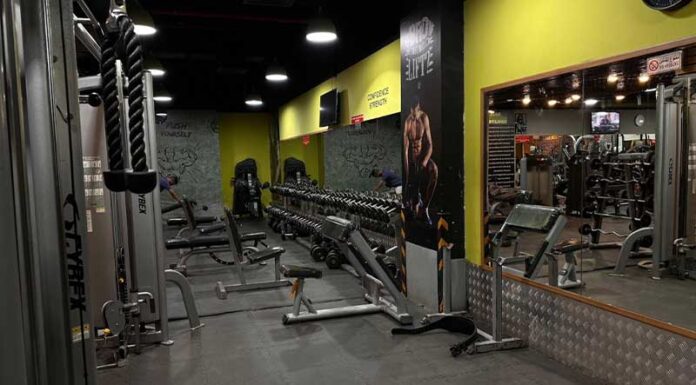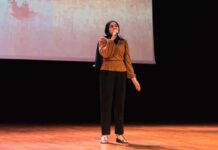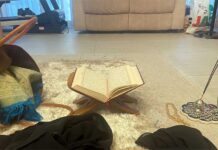
By Oussama Jamal
Kareem stood in the middle of the field when it hit him. He looked toward the stands and saw fathers cheering, calling out their children’s names, laughter cutting through the air. A faint smile tugged at his lips. How beautiful it is to have a father, he thought.
In 2012, Kareem was trying to understand what it meant that his father was never coming back. His father had been his only male role model. When Kareem lost him, his world shrank into something quieter, emptier.
“I had no one to look up to. No one to tell me how to be,” Kareem told me.
In school, Kareem held it together. Good grades, polite smiles. But beneath the surface, he was drifting. He never spoke about his father; instead, he joked his way through conversations, using humour as a shield for insecurities he couldn’t name.
At home, the silence was thick. He drowned it out with loud music and endless gaming. His mother, left to raise him and his younger sister alone, watched him spend hours in his room. By 18, Kareem confessed, “I had no hobbies, no goals. Just… nothing special about me.”
Then came the summer of 2022. Who would’ve thought a room could change a person?
Kareem’s childhood friend Hamza, the same one he spent hours gaming with, had a father worried about his son wasting summer indoors. So, he signed Hamza up for a membership at a gym inside Sahara Centre Mall. Hamza agreed on one condition: Kareem had to join him. Kareem’s mother didn’t hesitate; she welcomed anything that got her son moving and paid for a three-month membership.
“It was just to hang out,” Kareem said. “We’d train a bit, then laugh around, grab some drinks after. Honestly, I didn’t think it would turn into the start of a new life.”
Soon, he noticed the shift. His rhythm, his energy, his reason to get out of bed.
“I wish I could explain it,” he said. “There’s something about walking into an empty gym in the morning that feels like the world belongs only to you.”
A new kind of world greeted him, the clang of weights, the mirrors stretching across the walls and the smell of iron and sweat. For the first time in years, his days had structure: wake up, gym with Hamza and then come home sore but satisfied.
“Man, it sounds dumb,” Kareem laughed, “but I’d come home after lifting and feel like I actually achieved something real for once, not some digital trophy or flashing lights. The calluses, the sore arms. That was proof.”
At first, nothing changed. Kareem struggled with the barbell, shoulders trembling as Hamza shouted encouragement. But then, the small things came; his arms grew tighter and his shirts fitted differently.
“That’s when it clicked,” Kareem said. “I wasn’t just hanging out anymore. I started to like the grind.”
And progress gave him something else he hadn’t felt in years, confidence.
“I used to be so insecure,” he admitted. “I wouldn’t even want to talk in class or meet new people. But the gym… it gave me skin I could finally live in.”
The gym also became something symbolic. “You know, I didn’t have a male role model after my dad,” Kareem said, “so the gym kind of became that. The guys there, big, disciplined, focused. They gave me an image of who I wanted to be.”
By the end of his membership, Kareem changed. The physical gains were obvious, and his once-slouched shoulders now squared when he walked. But the deeper shifts showed in how he carried himself. He started waking up earlier, paying attention to his studies and even helping his mother.
Three years on, Kareem still trains, but mostly on his own. The gym isn’t just a pastime. It’s his anchor, the force that reshaped him after years of drifting.
“I just felt different,” he said. “Like I wasn’t that lazy, insecure kid anymore. I had control. And for the first time since my dad died, I felt … strong.”
Kareem paused, then added softly, “people pay to lose weight, sweat, change their moods; I paid for my life back.”

















